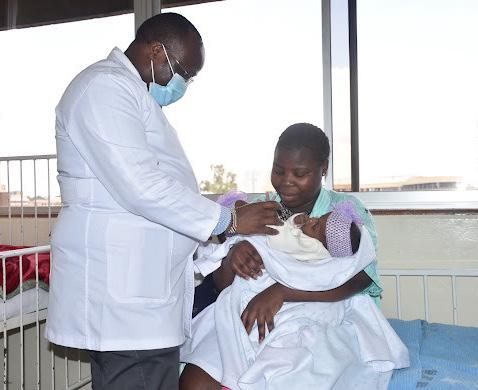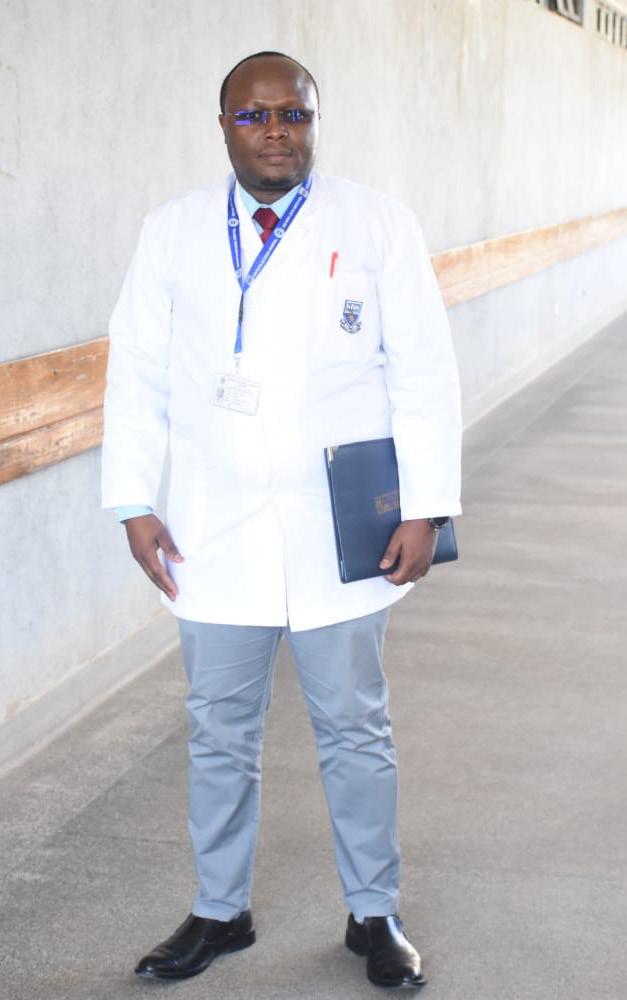
4 minute read
Exploring Professional Healthcare
By Moses Njomo
The Newsline was privileged to catch up with Rev. Jecinta Kiugi and John Kanyi both who are professional health care chaplains and extracted the following interview.
Advertisement
In health care institutions such as the Kenyatta National Hospital (KNH), the role of chaplaincy is to enhance holistic care to the patients leading to positive outcomes. Holistic care entails physical, mental, and spiritual care since all human beings have a body, mind and spirit which are all interdependent; you cannot ignore either and this commitment is reemphasized in our social media hashtag, ‘KNH Inakujali’.
The chaplain, therefore, is a part of the healthcare multidisciplinary team since spirituality helps the patients in expressing their human despair, find meaning in life’s struggles, and transcend their own emotional distress.
A hospital chaplain is a professionally trained clergy member who supports patients and staff with spiritual and religious concerns. He or she is clinically trained to help navigate the healthcare experience.
Healthcare chaplains are specially trained to support belief systems across faiths and cultures. In order to better meet the needs of patients, chaplains receive more than 1,600 hours of training focused specifically in healthcare settings and are certified by specific international institutions.
KNH Health Care chaplain, Rev. Jecinta Kiugi, explains that Healthcare Chaplains are key personnel and clinically trained, to play a pivotal position in contributing to the achievement of the hospital’s vision and mission. The caregivers and staff face harrowing and stressful situations and thus chaplains have an evolving role in spiritual support to healthcare teams towards; improved clinical outcomes, influencing better decisions about care and enhancing staff morale.
She further explains that there is a thin but profound line between religious care and spiritual care. It is therefore prudent to clearly distinguish between religious care and spiritual care in a hospital setup. What patients need is spiritual healing to support their physical and mental healing.
“In professional chaplaincy we say that all religious care is spiritual but not all spiritual care is religious, thus a professional chaplain should be able to give spiritual care to all patients and staff regardless of their denomination, faith or no faith since they are all members of the hospital community” “Taking the religious or denominational path is a great risk to the institution because we can’t have all denominations or religions represented and have all their interests met hence professional standards have been developed in the practice of healthcare chaplaincy” said Rev. Kiugi. On his part, Rev. Kanyi addressed the question of healthcare institutions having equipped sacred spaces (chapels) where members of the hospital community can spare sometime and engage in spiritual rituals like prayers, reflections, meditations, sacraments without interfering with the hospital core mandate of quality patient care.
“The chaplain explores the patient`s situation to identify the needs, hopes and resources of the patient that can help them cope and make meaning out of their situation. All care must be recorded and where professionalism is upheld the chaplain should also chart like all the other medical practitioners,” said Rev. Kanyi.
The duo summarizes reasons as to why Healthcare Chaplaincy is paramount;
They highlight that Professional healthcare chaplains help the patient, loved ones and staff to find meaning and comfort in their struggles. Spiritual struggles are real and we all can tell when we feel rejected, lonely and many other feelings.
It is also evident that most patients have a sense of abandonment and loneliness while receiving medical care, the chaplain intentionally listens to the patient and makes spiritual interventions. PHOTO | STEVE ARWA

Professional Healthcare Chaplain, Mr. John Kanyi attending to a patient in the ward
PHOTO | STEVE ARWA

Professional Healthcare Chaplain, Mr. John Kanyi
PHOTO | STEVE ARWA







